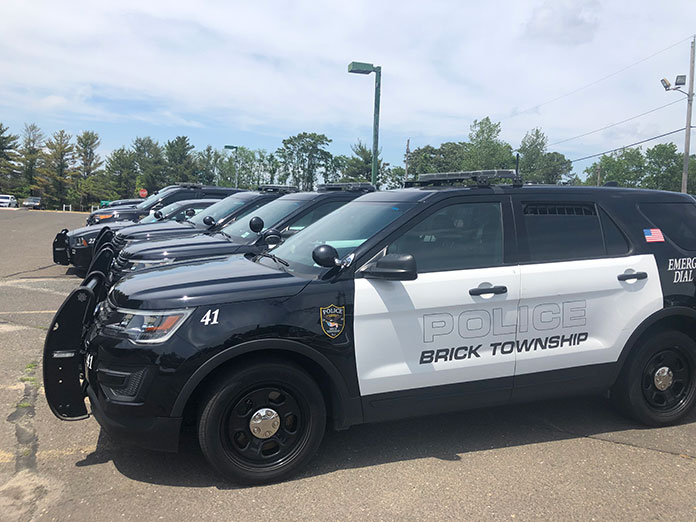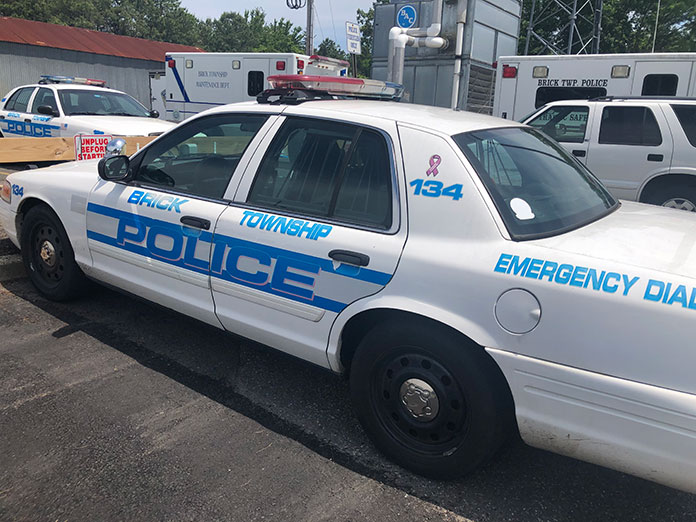
BRICK – Roadways were largely deserted during the first weeks of the coronavirus pandemic, and traffic summonses were “way down,” said Brick Police Chief James Riccio, but as time went on, that is no longer the case, he said in a recent phone interview.
“Right now, we’re getting back to – if you want to call it – normal,” he said. “In the height of it, we weren’t pulling over cars unless it was absolutely necessary, like reckless driving, because of the potential for exposure [to the coronavirus].
When Traffic Unit officers weren’t handling traffic calls, they were in the neighborhoods, doing some selective enforcement based on where there are numerous accidents, or in areas where there are complaints about speeding or other violations, he said.
“I want my officers out there doing traffic enforcement, but I’m more concerned about them getting into the neighborhoods, checking on businesses – many of which were closed – and things of that nature,” he said.
In the early days, the chief said the department changed a lot of their patrol plans and limited the type of calls the officers would go on, and changed the way in which the officers would handle those calls.
During normal times, the department always sends a police officer on EMS calls, but during the height of the pandemic, police officers did not go to certain first aid calls where there was no need for an officer, such as when there was a call from a nursing home, he said.
“They might respond and make sure that the person was not in some type of distress or cardiac arrest, and then back off once they realized first aid was there, if there was no reason to unnecessarily expose them,” he said.
At the beginning of the public health crisis, Riccio said the department cancelled some of the selective enforcement special details to limit the officers’ exposure to the virus, but those details are back up and running now.
“We were fortunate, because in the beginning we saw the potential of what was coming and we were able to get our officers the proper PPE (personal protective equipment) when this first broke,” Riccio said. “Our ability to protect them and give them the proper PPE is what kept our officers healthy.”
Asked if the officers have been breaking up large illegal gatherings, the police chief said there were very few complaints. There were a couple of incidents when large crowds gathered on beaches or other areas that were closed, but the residents of Brick were complying with the state orders as they came out, he said.
“Besides that, people weren’t having the big gatherings that you heard about in other towns,” Riccio said. “If they were, people weren’t reporting them.”
Other crime in town has remained about the same, he said. There are normally 55 to 60 domestic calls a month, and those numbers have not increased.
Brick Police are not involved with evictions; those are handled by the Sheriff’s Department.
The township had planned to hire 11 new police officers, but that number was cut to one because of budget constraints. As a result, Riccio said the department is short 18 officers, which includes officers who are out with injuries. He said he hopes the 11 officers would get hired once things get back to normal.

And finally, Chief Riccio was asked if Brick has been impacted by the recent protests and looting that began in the aftermath of the police chokehold killing of George Floyd in Minneapolis.
“No, and I think it’s because we have a very good relationship with our community,” Riccio said.
“We obviously denounce everything we’ve seen happening in regard to Mr. Floyd being killed, and we understand peoples’ frustrations and their right to protest” he said. “We stand behind that, that we don’t condone, obviously, police brutality in any way, shape or form.”
The Police Chief said that Brick police officers are trained to use the minimum amount of force that is necessary to control someone, and they always try to make sure there are enough officers to physically restrain someone when needed.
“The choke hold is never used, and police are not allowed to use chokeholds in Brick.” he said. “We just train them continually about using only the minimum amount of force necessary to get the situation under control.”







